Are you drinking too much?
Alcohol use has become common
Alcohol use has become common in our society. Many over-55s find it pleasant and enjoyable to have a drink every now and then. There are also people over 55 who drink to relieve the feeling of stress, loneliness or depression. Research shows that the use of alcohol has increased among seniors. Over the past 10 years, the number of cases of alcohol poisoning among people over 55 has tripled. There are also more accidents due to alcohol. The risk of health damage from alcohol depends on the total alcohol consumption of the drinker, but also on the drinking pattern that someone has.
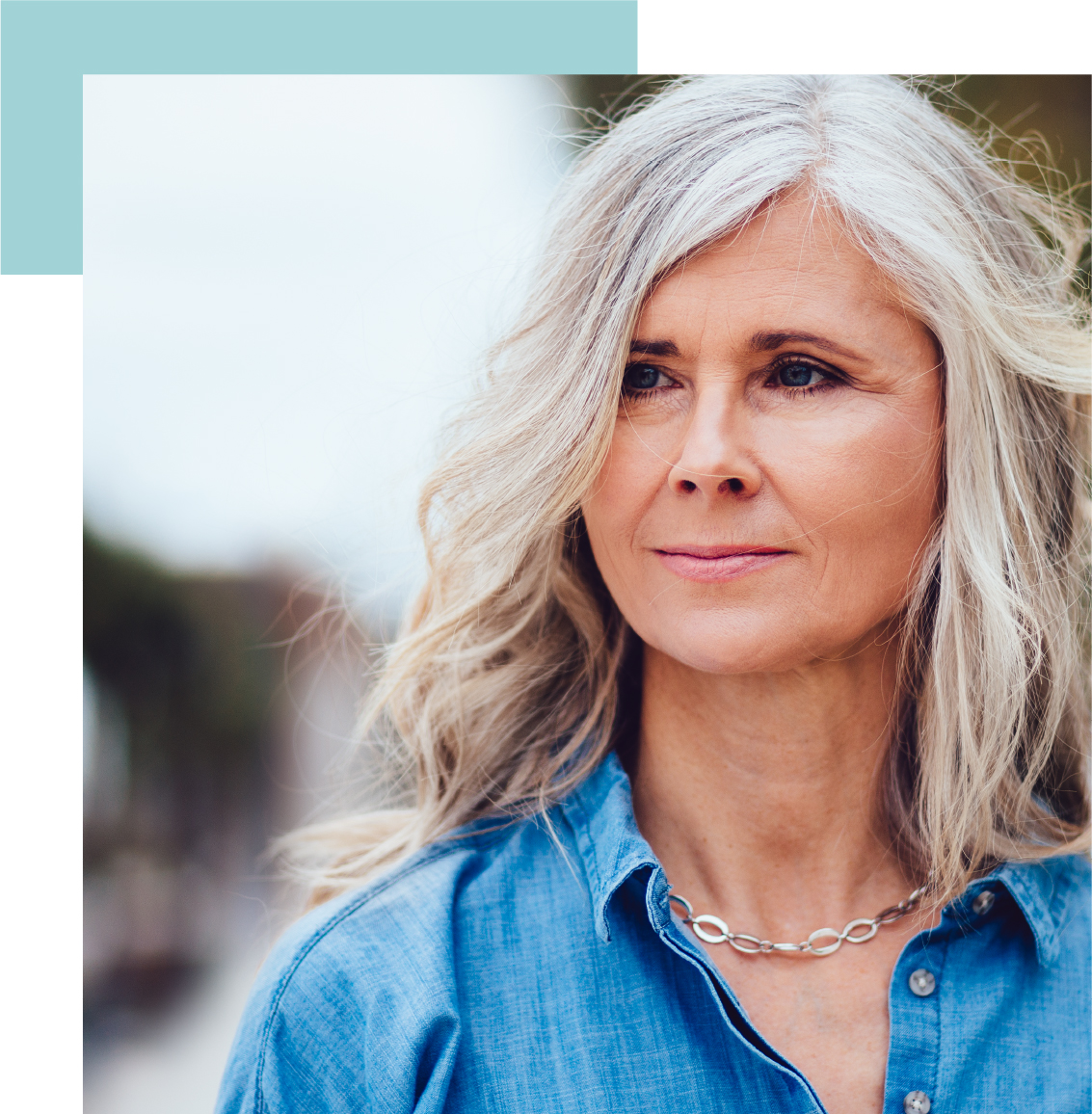
The higher the total consumption of alcohol, the greater the risk of harm. The majority of over-55s seem unaware that alcohol is an addictive substance and not good for health. The current standard for alcohol consumption of the Health Council is: 'don't drink alcohol, or no more than one glass a day'. More than a third of the over-55s think that this standard is two glasses a day. As the age increases, people more often say they have no idea what the current standard for responsible alcohol consumption is. What about your usage?
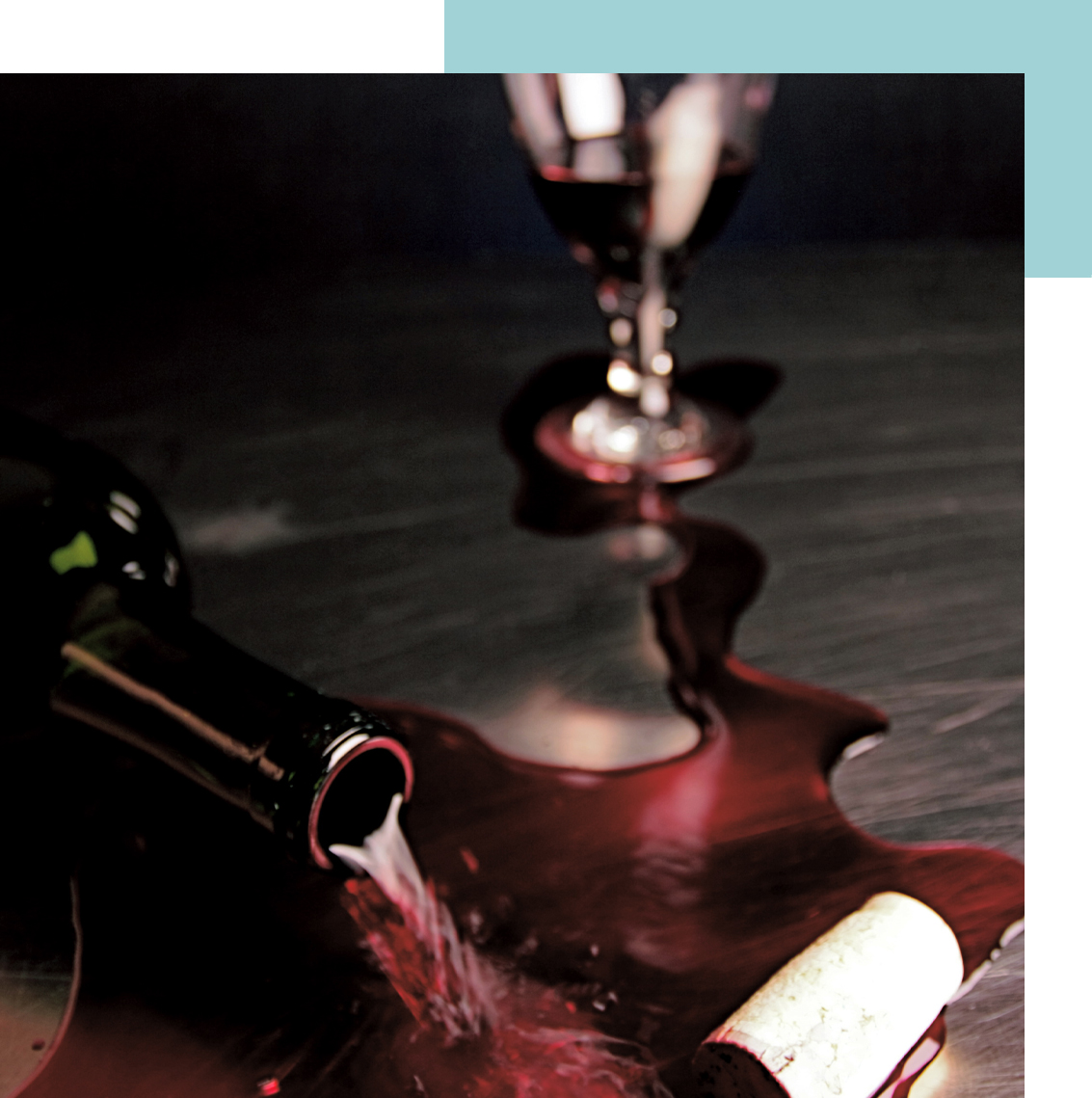
What is responsible alcohol consumption?
Responsible drinking means that its use has no adverse effects on health, work and relationships. Alcohol increases the risk of physical complaints, such as cardiovascular disease and cancer. The Health Council issued the following advice in 2015: Do not drink alcohol or in any case no more than one glass a day. Drinking less or no alcohol is always better! Daily drinking is not recommended to avoid a habit.
The Health Council uses standard glasses as units. Each type of drink has its own standard glass:
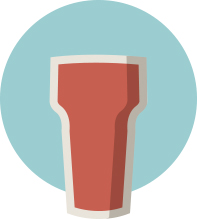
250 ml
5% alc
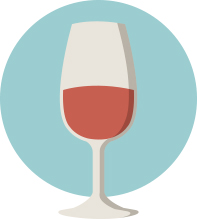
100 ml
12% alc
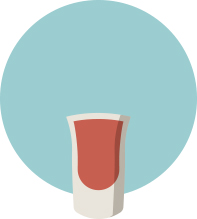
35 ml
35% alc
Responsible Drinking Guidelines
1
Do not drink alcohol or in any case no more than one glass of alcohol per day. And keep at least two alcohol-free days a week to prevent habituation.2
Don't drink if you have to drive.
Agree in advance who will be the designated driver.
3
Alcohol stimulates the expulsion of water and only causes more thirst.Drink soft drinks, tea or water for thirst and alcohol for the 'tasty'. Drink a glass of soda every now and then between alcoholic drinks.
4
Drink for pleasure and relaxation and not to drink away stress or underlying problems.5
Make sure that you are not the first to empty your glass every time. Watch the pace of your fellow drinkers and try to be the last to empty your glass.
6
Say no every now and then and don't drink because someone is giving another round.7
Do not drink a drink and beer at the same time and do not combine alcohol with other drugs.
8
Drink geen borrel en bier tegelijk en combineer alcohol ook niet met andere drugs.

Phases of use
Of course, not everyone who uses a substance is immediately addicted. Most people sometimes use stimulants: a glass of wine with dinner or a cigar on special occasions. People feel comfortable with this or less insecure because of it. As long as you're not dependent on it, there's nothing wrong with it. People who can no longer live without them are in the danger zone of an addiction.
Drugs give a pleasant feelingAll stimulants, including alcohol, have in common that they give a pleasant feeling. The reward center in our brain is responsible for the pleasant feeling. When this reward system is strongly stimulated by substances such as alcohol or other drugs, it releases a substance called dopamine. Dopamine provides a pleasant feeling. Then you want more of it.
Different phases
Before someone gets into trouble with his alcohol use, several stages have already passed. The use of addictive substances can be divided into six phases
What stage of use are you in?
Want to find out what kind of drinker you are? Here you can see which stage suits your use. For example: Do you drink alcohol regularly or occasionally? Do you usually drink with others or alone? Are you drinking in moderation or more than you intended? You can click on the statements you recognize or perhaps also think or pronounce. Here you can find out what type of drinker you are.
1. Introduction
Tick answers that suit you. If none of the answers fit your situation within a phase, then you don't tick anything. Then you can move on to the next phase to find out what type of drinker you are.
| 1. | |
| 2. | |
| 3. | |
| 4. |
2. Experimental User
Tick answers that suit you. If none of the answers fit your situation within a phase, then you don't tick anything. Then you can move on to the next phase to find out what type of drinker you are.
| 1. | |
| 2. | |
| 3. | |
| 4. |
3. Social User
Tick answers that suit you. If none of the answers fit your situation within a phase, then you don't tick anything. Then you can move on to the next phase to find out what type of drinker you are.
| 1. | |
| 2. | |
| 3. | |
| 4. |
4. User Habit
Tick answers that suit you. If none of the answers fit your situation within a phase, then you don't tick anything. Then you can move on to the next phase to find out what type of drinker you are.
| 1. | |
| 2. | |
| 3. | |
| 4. |
5. Problematic User
Tick answers that suit you. If none of the answers fit your situation within a phase, then you don't tick anything. Then you can move on to the next phase to find out what type of drinker you are.
| 1. | |
| 2. | |
| 3. | |
| 4. |
6. Dependent User
Tick answers that suit you. If none of the answers fit your situation within a phase, then you don't tick anything. Then you can move on to the next phase to find out what type of drinker you are.
| 1. | |
| 2. | |
| 3. | |
| 4. |

Feiten en fabels
"Alcohol vs. Leren"
Take on the challenge to stop drinking for a month. For example
, you can participate in 'Dry January' or 'IkPas'. These national initiatives are linked to a certain period of the year. You can of course reduce or stop at a time or period that you want!
Hierbij volgen 10 redenen om te stoppen met alcohol:
1. U doet uw lever er een plezier mee.
2. Het is beter voor uw hart en bloedvaten.
3. U slaapt beter.
4. U bespaart geld.
5. U heeft geen katers meer.
6. U valt af.
7. U krijgt een mooiere huid.
8. Het is beter voor uw hersenen.
9. U krijgt sterker en gezonder haar.
10. Het stoppen zal u helpen om in te zien dat alcohol ook nadelen heeft.
Free sessions
always near you
Participation in 'Moti55' is free and the sessions take place at a location near you. Click on the button below to see where you can contact us.Click here to approach Moti55
